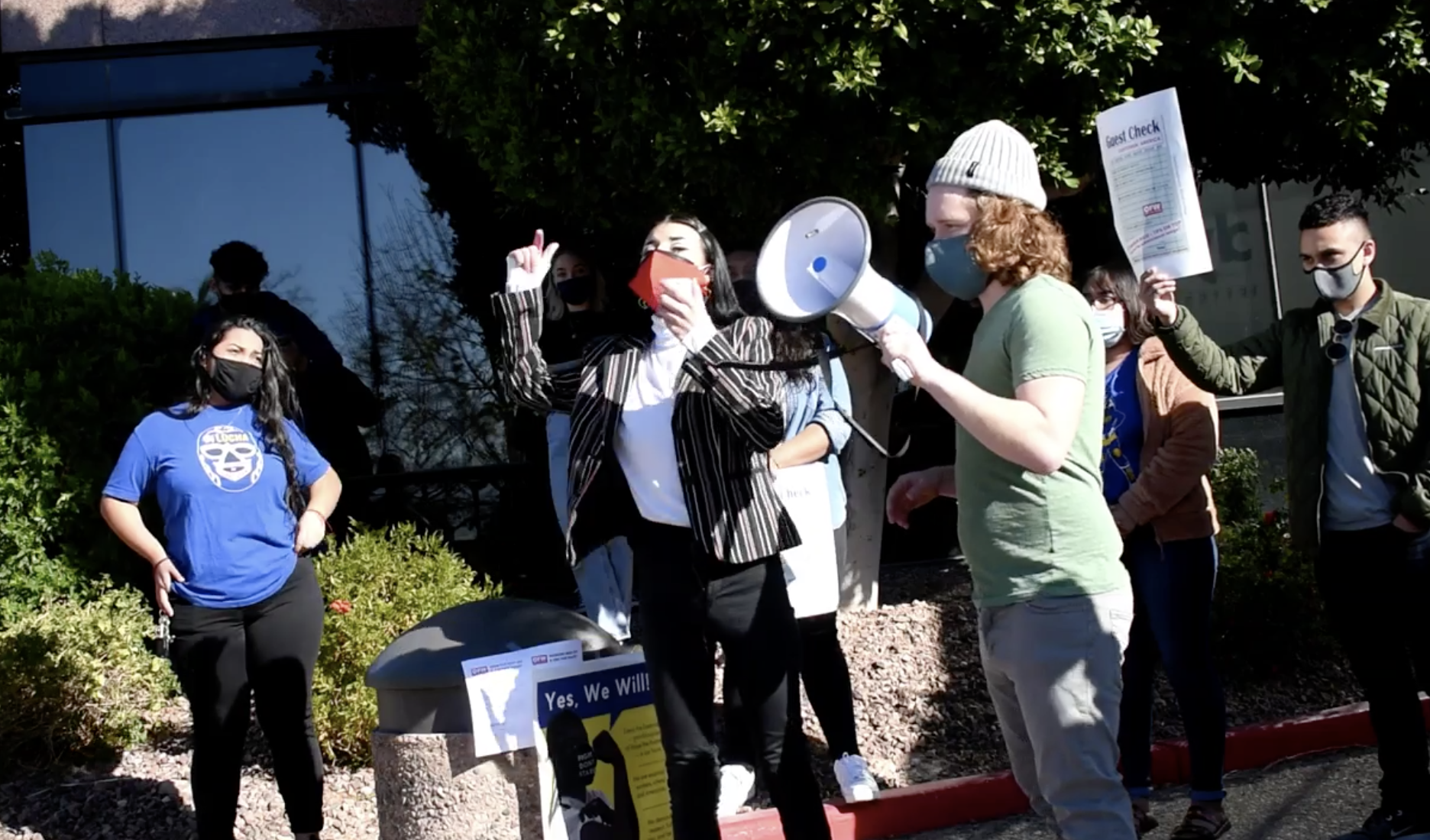
LUCHA / Facebook

Audio By Carbonatix
It felt good to be heard at last week’s One Fair Wage rally, Haley Holland said.
“It was empowering to stand up for those whose stories don’t get told,” Holland, who spoke at the event held at Senator Kyrsten Sinema’s office on East Camelback Road, said.
An organizer of the rally, she was there to demand that Sinema commit to advocating for adding service workers to the Fair Wage act. “This isn’t just about raising minimum wage,” she clarified. “It’s about including the sub-minimum wage, which is what servers in bars and restaurants are paid. People living off of tips are not being included in this recovery bill, and that’s why we held the rally.”
Raising the sub-minimum wage would level the playing field for service workers, Holland said. Right now, the federal wage for tipped workers is $2.13. (In Arizona, the minimum wage for such workers is significantly higher, though: $9.15.)
“If we can get Sinema to commit to raising it to $15 an hour, with tips on top, we can bring respect and dignity to the service industry,” Holland said. “That would mean I don’t have to tolerate the atrocious behavior of some patrons, where I’m thinking, ‘Wow, this guy is being rude, he isn’t going to tip me, and without his tip, I’ve already got a lousy paycheck.'”
Holland sees a connection between slavery and the fact that some people don’t view service work as a real job. Southern slaves freed in the nineteenth century often took food service jobs, but restaurant owners didn’t want to pay black people, who came to rely on tip money as a wage. Part of that money went back to the employer.
“People of color were paying restaurant owners for the privilege of working,” Holland said. “The work we do in this industry remains linked to that kind of thinking. That’s why we’re paid sub wages.”
Holland has had enough of lousy pay. She’s also sick of sidestepping COVID-19 – “of sanitizing, of changing into gloves and a mask and wondering if I was still going to end up infecting a patron or would wind up on a ventilator myself in two weeks.”
Before the pandemic, she worked 65-hour weeks, bartending nights and weekends and as a hostess/server at a local restaurant. “Now, I’m doing the same work, but my hours are super minimal.”
As a One Fair Wage organizer, Holland phone-banks for seven hours a day, calling people to encourage them to tell their stories of being underpaid, to write letters to congresspeople demanding fair treatment.
She’s hopeful things can change. Although President Biden has been vocal about raising minimum wage, the response from Sinema’s office has been silence. “That could change, too,” she said. “For all I know, she could be in a meeting right now, discussing this.”
Either way, she knew things won’t change overnight. “All of us who were at the rally, we knew those mom-and-pop businesses can’t afford to go from paying sub-minimum wage to paying $15 an hour. But Arizona is blue!” she exclaimed. “So anything can happen.”
Ultimately, raising lousy wages isn’t about money, Holland insisted. It’s about dignity.
“You show respect when you pay a worker a livable wage,” she pointed out. “You give them the freedom not to tolerate bad behavior from patrons and employers. A decent wage is symbolic of something bigger than how much cash we take home at the end of the day.”
This story was updated to include the state’s minimum wage for tipped workers.